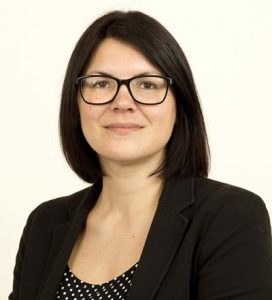Claudie Beaulieu, UC Santa Cruz
Moss Landing Marine Labs Seminar Series - February 14th, 2019
Hosted by The Chemical Oceanography Lab
MLML Seminar Room, 4pm
Open to the public

About the Speaker
Assistant professor, Ocean Sciences Department, UCSC (since 2018)
Visiting academic, Ocean and Earth Science, University of Southampton (since 2018)
Lecturer, Ocean and Earth Science, University of Southampton (2013-2018)
Postdoctoral researcher, Atmospheric and Oceanic Sciences, Princeton University (2009-2013)
PhD, Water Sciences, INRS-ETE, University of Quebec, 2009
BSc, Statistics, Université Laval, 2003
Website: https://beaulieu.sites.ucsc.edu/
Abstract
Natural variability in all aspects of the Earth system – including the climate system and ecosystems – presents a formidable challenge to the detection and quantification of change forced by industrial activities. Error in detection can disrupt concerted efforts to respond to the challenges of climate change, whereas statistically robust quantification informs our understanding of underlying mechanisms of change. The rate of observed climate change results from the superposition of mixed signals such as trends and shifts on variability arising from the memory within the climate system. Statistical methods used to characterize change in time-series must be flexible enough to distinguish these components. In this talk, I present a new methodology that is used to separate different modes of change from memory in global mean surface temperature records. This analysis clarifies a key point in the scientific debate related to the recent “hiatus” in warming. I also discuss the importance of considering memory timescales (i.e. short vs long memory), and highlight regions in the ocean where the routinely assumed short-memory assumption may be problematic and affect detection.

